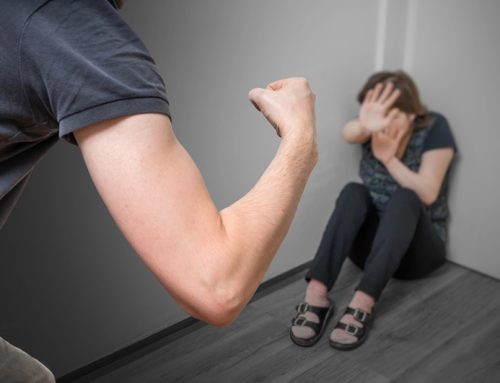VAWA Lawyer Helps Gain Your Safety & Independence
Escaping a domestic violence situation can feel like an impossible challenge. Fear, isolation, and financial dependence often bind victims to their abusers. However, they can seek protection in the Violence Against Women Act. A skilled VAWA lawyer is your steadfast ally in this journey.
Here, learn about how an immigration lawyer supports survivors of domestic violence by overcoming challenges and debunking myths. See a step-by-step guide to VAWA, ensuring you are well-prepared and benefit from a successful petition.

A VAWA Lawyer Supports Survivors Of Domestic Violence
Language barriers often make it difficult for immigrant survivors of domestic violence to communicate effectively. It hinders access to necessary resources and legal help. Immigration lawyers provide essential legal representation and advice. They guide you through each step and ensure you understand your rights and options.
Fear of deportation is another powerful tool used by abusers to keep victims silent and compliant. A VAWA immigration lawyer can assist in gathering and organizing crucial documentation and evidence to strengthen your petition. This support helps to alleviate fears and ensures that your petition is thorough and well-supported.
Limited knowledge of your rights and available resources can further isolate you from potential support systems. An immigration attorney offers emotional support and connects you with additional resources, including counseling services and shelters. This comprehensive approach helps you rebuild your life and gain independence.
The complexities of domestic violence as an immigrant can be disheartening. Still, with the support of a dedicated lawyer, you can find the guidance and resources necessary to reclaim your life. Understanding an attorney’s critical role highlights the importance of knowing your eligibility and the benefits of filing a petition.
Overview Of The VAWA Eligibility & Its Benefits
The Violence Against Women Act aims to protect victims of domestic violence, particularly those in vulnerable situations, such as immigrants. Enacted in 1994, it provides a legal framework and resources to help victims escape abusive relationships and achieve independence.
VAWA’s eligibility criteria cover various familial relationships, ensuring broad protection. If you are the spouse or former spouse of an abusive U.S. citizen or permanent resident, you can file a petition. Additionally, parents and children can seek VAWA protection.
Filing a VAWA petition brings numerous benefits, serving as a lifeline for those trapped in abusive situations. One of the primary advantages is protection from deportation. If your petition is approved, you may seek a lawful permanent residency and obtain your Green Card.
You may receive work authorization to support yourself financially and gain economic independence. Another significant advantage of filing a VAWA petition is accessing public benefits and services. These support services are vital in helping victims transition to a safe and independent life.
Knowing the benefits is crucial, but understanding the steps to file a petition is equally essential. By preparing thoroughly, you can ensure a smoother process and increase your chances of securing the protection and support you need.
Step-By-Step Guide Of The VAWA Petition
Experiencing domestic violence is a traumatic ordeal. Understanding your options is crucial for taking steps toward safety and independence, and VAWA offers that path. Knowing the steps can help you navigate the petition process and gain assurance that you’re moving closer to freedom.
Preparing For Your Petition
Proper preparation is crucial when filing a VAWA petition. Start by gathering all necessary support documentation:
- Proof Of Relationship To The Abuser: Gather marriage or birth certificates.
- Evidence Of The Abuser’s Citizenship Or Permanent Resident Status: Collect relevant documentation, such as copies of their birth certificate, passport, naturalization certificate, Green Card, or other immigration documents.
- Documentation Of Abuse Or Extreme Cruelty: Obtain police reports, medical records, and affidavits from witnesses.
- Proof Of Good Moral Character: Secure letters from community members and employers.
Organizing your documents is essential for a smooth filing process. Having a checklist can help you ensure you have all the necessary paperwork. Proper organization not only helps in compiling a thorough petition but also streamlines the review process for officials. A systematic approach can significantly reduce stress and make the process more manageable.
Completing The Necessary Forms
Accurate completion of Form I-360 is essential for the success of your petition. Also known as “Petition for Amerasian, Widow(er), or Special Immigrant,” this is the primary document used to file for VAWA relief.
Begin by thoroughly reading the instructions on the form provided by the U.S. Citizenship and Immigration Services (USCIS). Be as detailed and honest as possible when filling out this form. Include locations, dates, and any other details. It’s beneficial to have police reports and medical records should be referenced in this section to corroborate your statements.
After completing the form, double-check for any errors or incomplete sections. Ensure you fill out all required fields and that no signatures are missing. Even minor errors can cause rejection or delay, so it is crucial to review your form carefully. Consider having a legal advisor review the completed form to catch any issues you might have missed.
Submitting Your Petition
Submitting an accurate petition is vital to avoid issues and ensure timely processing. First, send it to the appropriate USCIS address in the form instructions. Carefully follow the specified procedures to prevent processing delays. You should consider the filing fees associated with the petition and check if you qualify for a fee waiver.
Your submission package should include the completed forms, supporting documents, and a personal statement detailing your experience. This statement should be honest and comprehensive, clearly showing your situation. By presenting a detailed and organized petition, you help ensure USCIS officials can easily understand and process your case.
Addressing common misconceptions about the VAWA process is essential as you progress through these steps. Misunderstandings can create unnecessary fear and hesitation. A VAWA immigration lawyer can clarify these myths and provide accurate information to help you feel more secure and informed.
Steps After Filing
After filing your petition, you can expect several steps in the process. First, you will receive a receipt notice confirming that USCIS has received your petition. This notice is an important document, as it provides a tracking number for your case and proves that your petition is officially in the system.
Next, USCIS may request additional evidence or documentation, known as Requests for Additional Evidence (RFEs). These requests are common and should not cause alarm. Instead, view them as an opportunity to strengthen your case. Respond promptly and thoroughly to any RFEs, providing all requested information and documentation. Timely and complete responses help prevent delays in processing your petition.
You may receive a Notice of Prima Facie Determination if your petition meets the initial criteria. This notice indicates that your petition has been preliminarily approved, and you may be eligible for certain benefits while your case is under review. These benefits can provide essential support during the waiting period.
A VAWA Lawyer Clears Up Common Misconceptions
Several myths about VAWA create confusion and fear. Immigration lawyers help clarify these misconceptions and provide accurate information, ensuring you understand your rights and options clearly. Here are some examples:
- Gender: It’s believed that only women can file a VAWA petition, but VAWA protections are available to all genders. Regardless of gender, any victim of domestic violence can seek help under this provision.
- Marital Status: Many think you must be divorced to file a VAWA petition. However, both current and former spouses can file.
- Type Of Abuse: There’s a misconception that VAWA is only for physical abuse cases. In reality, any form of abuse is grounds for a petition, including physical, emotional, psychological, or financial.
- Deportation Fear: Some believe filing a VAWA petition will lead to deportation. VAWA aims to protect, not deport, abuse victims. The law provides a pathway to safety without the fear of deportation.
A VAWA lawyer is critical in dispelling these myths and providing clarity. They offer precise and detailed explanations about the VAWA process, helping you understand your rights and options. Addressing these misconceptions helps reduce fear and uncertainty, making the path to safety more transparent and more approachable.
Additionally, having a knowledgeable advocate can alleviate many fears and uncertainties associated with filing a VAWA petition. Lawyers provide legal support, emotional reassurance, and practical advice. This comprehensive approach helps you feel more secure and informed as you work toward gaining safety and independence.
Understanding these common misconceptions can help you approach the petition process more clearly and confidently. Working with a knowledgeable attorney can dispel these myths and secure your protection and support.
Abogada Kate Supports Your VAWA Journey

At Abogada Kate, we understand the courage it takes to seek help and the challenges you face as a domestic violence survivor. We are dedicated to making your VAWA journey smooth and efficient. From the moment you reach out to us, we listen to your story with empathy, ensuring you are heard and understood.
We assist with gathering and organizing the necessary documentation, ensuring your petition is solid and well-supported. Our team is committed to representing you throughout the VAWA petition process, providing unwavering support and advocacy. You are not alone— our team is here to help you achieve safety and independence.
Summary
The Violence Against Women Act (VAWA) offers crucial protection for immigrant survivors of domestic violence. It covers various familial relationships, providing benefits such as protection from deportation, work authorization, and access to public services. Proper preparation, completing Form I-360 accurately, and responding to RFEs are essential to the success of your petition.
There are misconceptions about the process, such as gender eligibility and deportation fears. A VAWA lawyer can clarify these and ensure to inform you throughout the process. Abogada Kate dedicates itself to ensuring your petition is well-supported and providing you with unwavering advocacy. With thorough preparation and legal support, VAWA can lead to lawful permanent residency and a safer and more independent future.


